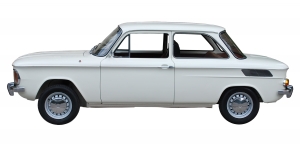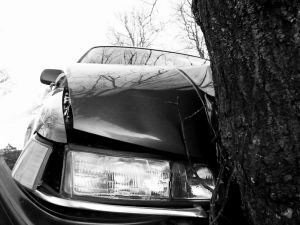What Is Full Coverage Auto Insurance and Why Would I Need It?
 Too many drivers buy only basic insurance, not really understanding why full coverage is the best way to go in most cases. Full car insurance gives you more coverage, allowing you to be prepared for more eventualities than just basic coverage.
Too many drivers buy only basic insurance, not really understanding why full coverage is the best way to go in most cases. Full car insurance gives you more coverage, allowing you to be prepared for more eventualities than just basic coverage.
Full coverage car insurance is yours for the choosing when you insert your ZIP code in the FREE box immediately!
Basic coverage only refers to liability insurance that is aimed at paying for the vehicle damages and medical bills to others that you caused in an accident. Without full coverage, your car repairs and medical costs will be paid solely out of your pocket.
Full Coverage Insurance Defined
Full coverage is everything beyond basic liability coverage in its broadest sense. Most are referring to collision and comprehensive when speaking of full coverage, but there are options beyond just these two types of coverage.
Full coverage is any insurance that pays for additional expenses you might incur from an accident or other unexpected loss. There are a lot of ways for your vehicle to be damaged and for you to be injured when it comes to driving.
Essentially, full coverage just allows you to be prepared for more unforeseen events. Basic liability coverage will only prepare you for one event: if you cause an accident that injures another person and/or damage another vehicle. You still need to have coverage for your vehicle and your injuries!
Full coverage ensures that you are ready if your car is damaged, if you are hurt, or even if an at-fault driver has little or no coverage to pay for your damages.
Full coverage also allows you to be prepared if your vehicle is stolen, vandalized, or even destroyed during a riot!
Furthermore, full coverage can also include incidental costs that accompany a car accident or loss. While not completely necessary, you should have all of your bases covered by purchasing coverage for as many potential situations as possible.
The Only Time You Don’t Need It
There is really only one instance when experts recommend that you don’t need to carry full coverage; that is, collision and comprehensive. Some people might recommend dropping such coverage options to save money, but it certainly won’t save money if you have to replace or fix your vehicle completely on your own in the future.
 Industry specialists, such as those at the National Association of Insurance Commissioners recommend that the only time that it is a smart move to drop full coverage is if your vehicle has little value; if it is worth less than $1,000. When your vehicle is worth so small an amount, the coverage will actually cost you more than it will pay out in the event of a claim, so it makes little sense to buy it.
Industry specialists, such as those at the National Association of Insurance Commissioners recommend that the only time that it is a smart move to drop full coverage is if your vehicle has little value; if it is worth less than $1,000. When your vehicle is worth so small an amount, the coverage will actually cost you more than it will pay out in the event of a claim, so it makes little sense to buy it.
Full Coverage for an Accident
When you cause an accident, your basic coverage will pay for the costs to other drivers, and you need to have full coverage to pay for your vehicle’s damages. Collision coverage is necessary to repair the dents and dings, or even to replace your vehicle outright. Collision will even cover your vehicle’s repairs if you hit something stationary, such as a tree, a utility pole, or your own garage door.
 Collision coverage includes a deductible, which is an amount that you must pay as your portion of the repair bill. Most people choose a $500 deductible amount, though there are deductibles that are higher and lower. The higher your deductible is, the lower the cost of collision coverage. You just need to choose a deductible amount that you are comfortable paying if the need arises.
Collision coverage includes a deductible, which is an amount that you must pay as your portion of the repair bill. Most people choose a $500 deductible amount, though there are deductibles that are higher and lower. The higher your deductible is, the lower the cost of collision coverage. You just need to choose a deductible amount that you are comfortable paying if the need arises.
If you are in an accident, then collision coverage will help to make you whole in one of two ways. First, it will pay for the repairs to your car. Again, this is minus your deductible. You can get estimates from garages and body shops to help you and your insurer agree on a settlement amount for repairs.
Secondly, if your repairs add up to more than your vehicle is worth, then your insurer will label your vehicle a complete loss, and your collision coverage will pay you the fair market value, again minus your deductible.
Fair market value is what your vehicle is worth on the market, just as if you put a “For Sale” sign on it and parked it in your yard. This cost takes into account the mileage, age, and overall condition of your vehicle. High mileage, an older model vehicle, and dents, dings, and rust will all decrease the value of your vehicle.
To find out if you should have collision coverage, you need to find out how much your vehicle is worth in the market where you live. Visit Kelley Blue Book, a leader in car valuation, to get a ballpark estimate of how much your vehicle is worth.
If your vehicle is worth under $1,000, or it is worth less than your deductible, then it won’t make financial sense to buy the coverage.
On the other hand, if your vehicle still has significant value, then you must protect that value by purchasing collision coverage. Additionally, many lenders require that you carry collision until the vehicle loan is paid off in order to ensure the vehicle will be paid for if it is damaged or wrecked.
Full Coverage for Natural Occurrences
On the other side of the collision coverage coin is comprehensive. Not all car damage results from an accident, and comprehensive pays for just about everything  else. Just like collision protection, comprehensive is also usually required by a lender to ensure that the worth of the vehicle is protected until the loan is repaid.
else. Just like collision protection, comprehensive is also usually required by a lender to ensure that the worth of the vehicle is protected until the loan is repaid.
Once the loan is paid, then comprehensive should be continued to safeguard the worth of your investment in your vehicle. Of course, this is only if the value is over $1,000. Few people have the money to repair or replace a vehicle without insurance coverage.
Comprehensive generally protects your vehicle’s worth from everything that is not an accident, but check your coverage just to make sure. Usually, anything weather-related, such as hail, wind damage, or flooding is covered. Similarly, other naturally occurring incidents, such as earthquakes and fires, are also covered. Your vehicle is also covered if things fall on it, causing damage, such as tree limbs.
Comprehensive also covers a wide range of damage caused by other people, just not with their vehicles. Vandalism such as spray painting, smashed lights, or damage to the car’s body is also covered by comprehensive.
Full Coverage for Theft
Comprehensive also covers the theft of your vehicle, which is a common concern in many areas.
The Federal Bureau of Investigation estimated that in 2009 vehicle theft losses amounted to $5.2 billion.
Many vehicles are stolen, never to be seen again. However, without comprehensive coverage, you will still be responsible for your loan or the value of your stolen vehicle.
Just like collision, comprehensive also has a deductible which you set. The lower the deductible, the more your comprehensive coverage will cost. Make sure that you have the money on hand to cover your deductible, so that damage from a storm or a theft does not leave you scrambling for the money to pay your deductible portion.
Other Full Coverage Options
Full coverage can also include many other options beyond collision and  comprehensive. For one, full coverage can also mean medical payment insurance.
comprehensive. For one, full coverage can also mean medical payment insurance.
Also called personal injury protection (PIP), some states also make this coverage mandatory. It pays for your medical bills from an accident, regardless of fault. As an added perk, PIP insurance has broad applications that also cover you and your family members as a pedestrian or if you are riding in another person’s vehicle, according to Wiser Drivers.
Furthermore, full coverage can mean uninsured and underinsured motorist coverage. This coverage pays if you are hit by a driver without insurance or with too little coverage to pay for all of your damages and injuries. It is so important that many states make it a requirement rather than an option.
Uninsured motorist coverage is really important because some states have as high as one in four drivers without insurance coverage, and you will likely be responsible for any costs when an uninsured driver can’t pay.
It is an unfortunate deal, but if you want to avoid a lot of waiting and stress, you should have the coverage to pay to make you whole again.
Full coverage can also cover additional costs that accompany an accident or loss that aren’t directly related to repairing a vehicle or paying for your injuries. After an accident, you will likely need to have your vehicle towed, and that can add up to a few hundred dollars on average. Towing coverage is relatively inexpensive, but it can save you a lot if you ever need it.
Similarly, the costs to rent a vehicle while yours is in the shop or you are looking for a new one can also be a huge burden that many don’t consider when buying insurance. At $30 to $50 a day, just one week of renting a vehicle can cost well over $200. Rental car reimbursement is also relatively inexpensive, but will also save you a good amount of money if you must rent a vehicle after an accident or other loss.
Find full coverage car insurance on this page once you have placed your ZIP code in the FREE search tool!
